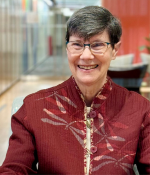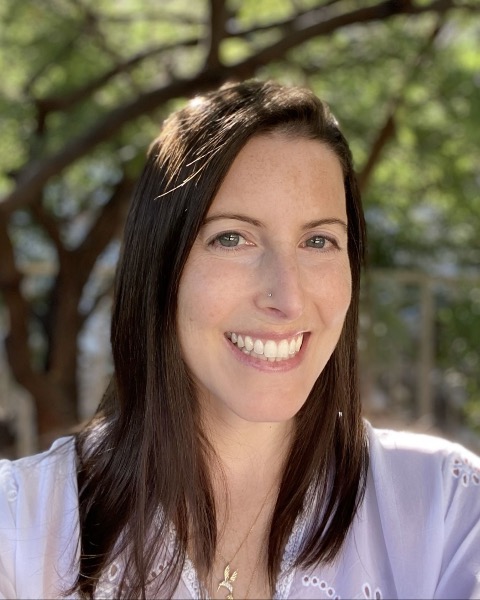CLP 2024 - Friday: Foundation | Poster Awards | Plenaries | Hackett | Dlin/Fischer | Katon | BOPs | Awards Toast | Walking Tour | Yesterday | Recordings
FRIDAY
09:00 AM
James L. Knight Convention Center (Third Floor)
Plenary Speakers Advocate Whole Person Care
How mind-body approaches form the foundation of modern health care
The opening plenary today will be presented by Helene Langevin, MD, director, National Center for Complementary and Integrative Health (NCCIH), National Institutes of Health, who will speak on Connecting Mental Health to Whole Person Health.

Helene Langevin, MD
As NCCIH director, Dr. Langevin oversees the Federal Government’s lead agency for research on the fundamental science, usefulness, and safety of complementary and integrative health approaches and their roles in improving health and health care.
NCCIH, with other institutions, is seeking to establish a Whole Person Research and Coordination Center that will provide infrastructure to help researchers explore how our bodies’ different systems interact with one another.
This research will build on established knowledge of healthy human physiology, rather than computational methods, and on healthy human function rather than diseases. Once built, it will be used as a tool to support the creation of data-driven whole-person models.
Such conceptual maps have been previously built for separate body systems, but none currently exist for the whole person, enabling researchers to explore health in the context of the whole person.
“There is no doubt that improving human health will require deepening our understanding of the whole person,” says the NICCH. “What we know today only scratches the surface of what there is to learn. Creating a unified whole person physiological map will move the field forward and potentially transform our understanding of health, helping researchers chart new routes to healthier lives.”

Gregory Fricchione, MD, FACLP
Immediately following Dr. Langevin’s presentation, the second plenary today will be presented by one of the Academy’s leading members and ACLP Eleanor and Thomas P. Hackett Memorial Award winner 2017, Gregory Fricchione, MD, FACLP.
Dr. Fricchione is associate chief of psychiatry, Massachusetts General Hospital; physician investigator, Psychiatry, Mass General Research Institute; Mind/Body Medical Institute professor of psychiatry, Harvard Medical School; director, Benson-Henry Institute for Mind Body Medicine, Massachusetts General Hospital.
Dr. Fricchione has made important original contributions to the treatment of patients with catatonia and to the management of cardiac patients who suffer from comorbid psychiatric conditions. He is co-author of four books on topics including general hospital psychiatry, catatonia, the connection between depression and heart disease, and stress physiology. He also authored the book Compassion and Healing in Medicine and Society on brain evolution and the relationship between separation and attachment, and its importance for medicine and the human experience.
Dr. Fricchione has been studying neurobehavioral mechanisms underlying diseases that connect the mind and body. He has most recently been interested in the understanding of epigenetics—how the environment can activate and deactivate certain genes—and discovering how approaches such as meditation, cognitive skills, and positive psychology can predispose to a healthier brain and body.
“Whole person care recognizes the addition of patient self-care as an essential component of health and well-being to the traditional components of pharmacotherapy and procedures,” says Dr. Fricchione. He will share his thoughts on how mind-body approaches form the foundation of modern health care.
The third plenary this session Mindfulness as a Doorway to Whole Health will provide a brief overview of the evidence-based applications of mindfulness as they relate to C-L Psychiatry and Whole Health, followed by a guided mindfulness practice designed to help cultivate the qualities of presence, ease, and compassion, and to foster the development of skilful response to distress and difficulty.

Pamela Mirsky, MD, FACLP
Presenter is Pamela Mirsky, MD, FACLP, assistant professor at University of Arizona. Dr. Mirsky is board-certified in Psychiatry, C-L Psychiatry, and Integrative Medicine. She previously worked in inpatient and outpatient C-L settings, including primary care and inflammatory bowel disease clinics, and acted as director of the Inpatient C-L Service at Banner University Medical Center Tucson. She established the Mindfulness Clinic at Banner University Medical Center South, where she saw individual patients for mindfulness-based psychotherapy and taught Mindfulness-Based Cognitive Therapy groups for depression. She founded her practice, Mindful Hummingbird, PLLC, to pursue teaching mindfulness full-time.
